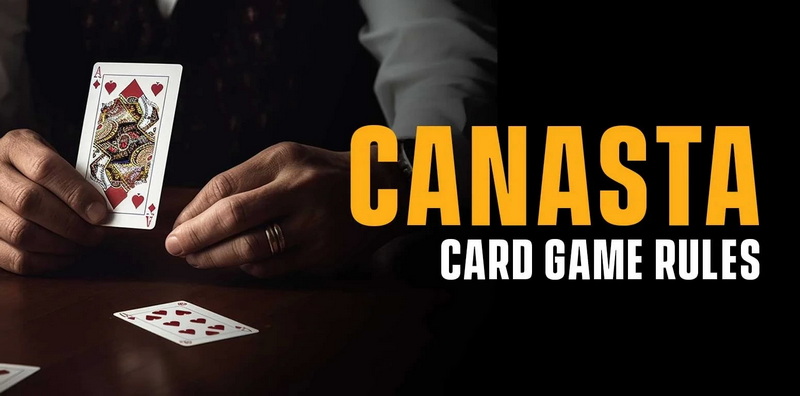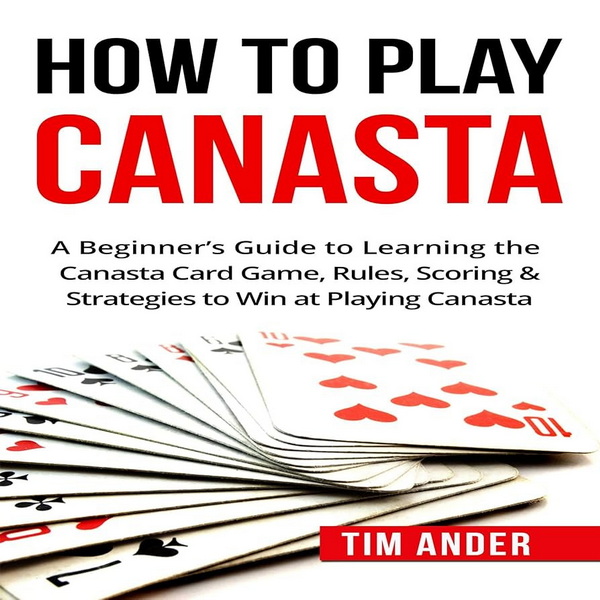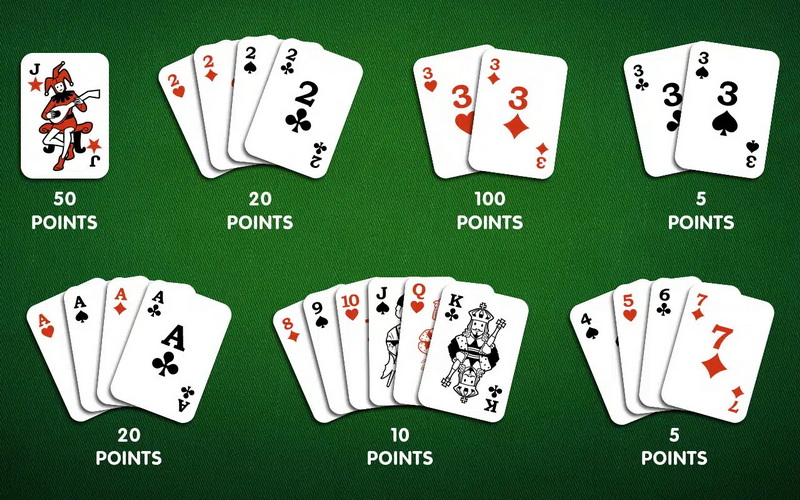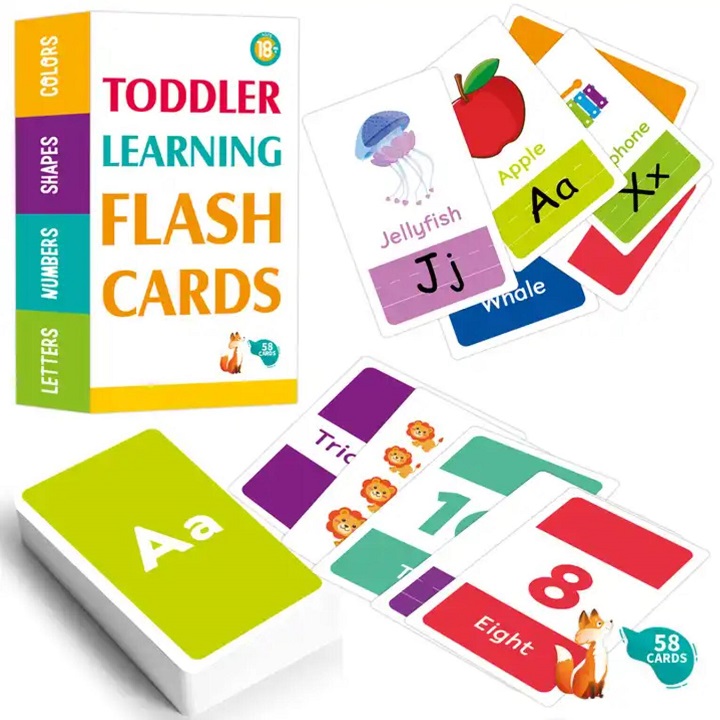Content Menu
● Introduction to Canasta
● History of Canasta
● Rules and Gameplay
>> Setup
>> Objective
>> Gameplay
>> Turn Structure
>> Scoring
● Strategies and Tips
● Variations of Canasta
● Social Aspects of Canasta
>> Building Relationships
>> Online Play
● Conclusion
● Related Questions
>> 1. What is the origin of Canasta?
>> 2. How many cards are used in Canasta?
>> 3. What is a canasta in the game?
>> 4. How do you score points in Canasta?
>> 5. What are some popular variations of Canasta?
● Citations:
Introduction to Canasta
Canasta is a classic card game that originated in Uruguay in the 1940s. It is a game of strategy, skill, and a bit of luck, typically played with two standard decks of cards, including Jokers. The game is most commonly played by four players in two partnerships, but variations exist for two or three players. The objective is to score points by forming melds of cards, particularly canastas, which are melds of seven cards of the same rank.

History of Canasta
The game was created by attorney Segundo Sánchez Santos and architect Alberto Serrato in Montevideo, Uruguay, in 1939. Their goal was to design a time-efficient game as engaging as Bridge. Canasta quickly gained popularity across South America and was introduced to the United States in 1949. By the 1950s, it became one of the most popular card games worldwide.
Canasta's rise to fame can be attributed to its appeal to both casual and competitive players. It became a staple in social gatherings and family game nights. The game's unique blend of strategy and chance made it accessible while still providing depth for more serious players.
Rules and Gameplay
Setup
Canasta is played with two decks of 52 cards plus four Jokers, making a total of 108 cards. Each player is dealt 11 cards, and the remaining cards form a draw pile. The top card of the draw pile is placed face-up to start the discard pile.
Objective
The main goal is to score points by forming melds of three or more cards of the same rank. A canasta, a meld of seven cards, is the ultimate goal. Canastas can be natural (no wild cards) or mixed (with wild cards).
Gameplay
Players take turns drawing cards from the draw pile or picking up the discard pile, forming melds, and discarding cards. To pick up the discard pile, specific conditions must be met, such as using the top card in a meld. The round ends when a player goes out by melding all their cards, provided their team has at least one canasta.
Turn Structure
1. Drawing Cards: At the beginning of each turn, a player must draw one card from either the draw pile or the discard pile.
2. Melding: After drawing, players can lay down melds on the table if they meet the minimum point requirement based on their current score.
3. Discarding: Finally, players must end their turn by discarding one card onto the discard pile.
Scoring
Points are awarded for melded cards, with bonuses for canastas and penalties for unmelded cards. The game is typically played to a cumulative score of 5000 points.
- Card Values:
- Aces: 20 points
- Eights through Kings: 10 points
- Threes through Sevens: 5 points
- Jokers: 50 points
- Wild Cards (Twos): 20 points
- Canasta Bonuses:
- Natural Canasta: 500 points
- Mixed Canasta: 300 points
- Penalties:
- Unmelded Aces: -50 points
- Unmelded Twos: -20 points
- Other unmelded cards: -5 points each

Strategies and Tips
To excel in Canasta, players should focus on forming canastas as quickly as possible while managing their hand effectively and keeping track of opponents' moves. Here are some key strategies:
- Prioritize Canastas: Aim to create canastas early in the game since they provide significant bonuses.
- Watch Opponents: Pay attention to what your opponents are picking up from the discard pile; it may indicate their strategy or desired melds.
- Use Wild Cards Wisely: While wild cards can help create melds quickly, holding onto them too long may prevent you from going out effectively.
- Manage Your Hand: Try to keep a balance between high-point cards and lower-point cards to avoid penalties when going out.
- Plan Discards Carefully: Discarding high-point cards may give opponents an advantage if they can pick them up; aim to discard low-value or less useful cards instead.
Variations of Canasta
Several variations of Canasta exist that add unique twists to gameplay:
- Two-player Canasta: Each player receives 15 cards instead of 11 and draws two cards per turn from either pile.
- Modern American Canasta: Features unique rules like dealing two piles of 11 cards to each player (hand and foot). Players must play from both piles during their turns.
- Samba: This variation introduces additional rules regarding melds that include specific sequences and colors.
- Bolivia: In this version, players must form specific combinations involving different ranks or suits for additional scoring opportunities.
- Canasta with Partners: In this variant, teams work together but cannot directly communicate about their hands, adding an element of surprise and strategy.
Social Aspects of Canasta
Canasta has become more than just a card game; it is often associated with social gatherings and community events. Many people enjoy playing Canasta as part of family traditions or during gatherings with friends.
Building Relationships
Playing Canasta encourages communication and teamwork among partners while fostering friendly competition among opponents. The game's social nature allows for conversations and interactions that enhance relationships over time.
Online Play
With advancements in technology, many platforms now offer online versions of Canasta that allow players from different locations to connect and play together virtually. This has helped maintain its popularity in modern times as people seek ways to engage socially while being apart.
Conclusion
Canasta is a timeless card game that combines strategy, teamwork, and a touch of luck. Its rich history and engaging gameplay make it a favorite among card game enthusiasts worldwide. Whether you're a beginner or an experienced player, Canasta offers endless opportunities for fun and competition while also serving as a means for social connection.

Related Questions
1. What is the origin of Canasta?
Canasta originated in Uruguay in the 1940s, created by Segundo Sánchez Santos and Alberto Serrato.
2. How many cards are used in Canasta?
Canasta uses two standard decks of 52 cards plus four Jokers, totaling 108 cards.
3. What is a canasta in the game?
A canasta is a meld of seven cards of the same rank, which can be natural or mixed.
4. How do you score points in Canasta?
Points are scored by forming melds, with bonuses for canastas and penalties for unmelded cards.
5. What are some popular variations of Canasta?
Popular variations include Two-player Canasta, Modern American Canasta, Samba, and Bolivia.
Citations:
[1] https://www.wikihow.com/Play-Canasta
[2] https://www.officialgamerules.org/card-games/canasta
[3] https://www.dummies.com/article/home-auto-hobbies/games/card-games/general-card-games/the-basics-of-canasta-193785/
[4] https://www.canasta-palace.com/lesson-1-complete-a-canasta-as-soon-as-possible/
[5] https://en.wikipedia.org/wiki/Canasta
[6] https://www.canasta-palace.com/a-quick-explanation-of-canasta/
[7] http://whiteworld.com/familyland/blogs/2015-canasta-tips.html
[8] https://www.wopc.co.uk/the-history-of-playing-cards/canasta
[9] https://www.youtube.com/watch?v=mVzahebqTqU
[10] https://www.youtube.com/watch?v=lG66qsLGyf4
[11] https://newtsgames.com/basic-history-of-canasta/
[12] https://www.instructables.com/How-to-Play-Canasta/
[13] https://www.gorge.org/canasta/
[14] https://www.canasta-palace.com/the-history-of-canasta/
[15] https://www.mplgames.com/blog/how-to-play-canasta/
[16] https://canastamasta.wordpress.com
[17] https://www.blitzpoker.com/blogs/canasta-card-game-rules/
[18] https://www.youtube.com/watch?v=QYEMpDoN0Mw
[19] https://bicyclecards.com/how-to-play/canasta
































